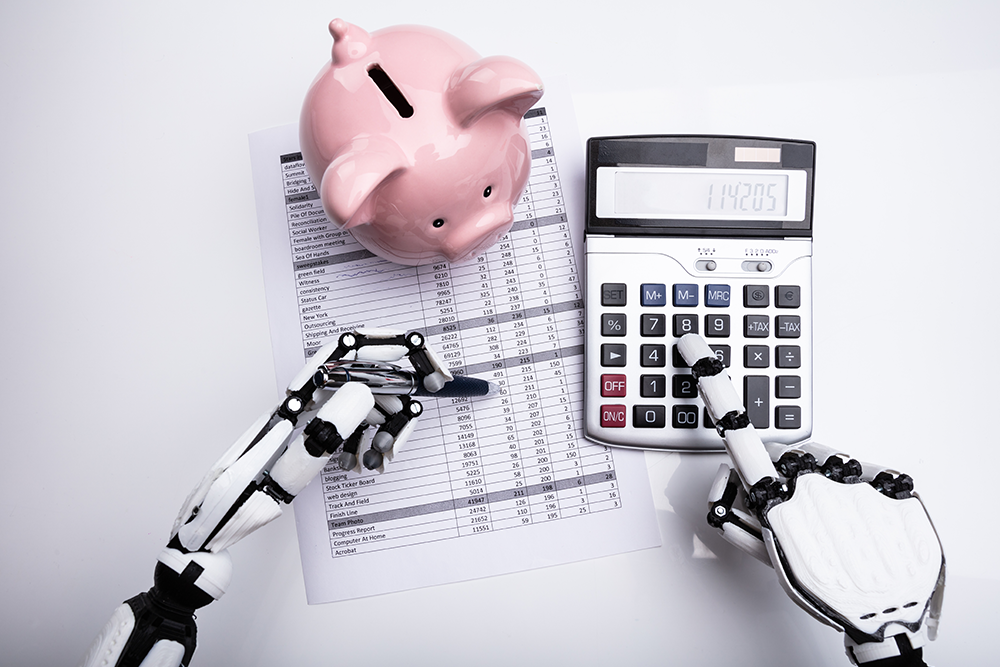
How AI is transforming accounting practice management
AI is often overhyped, but its benefits for accountants is real. Read about the state of AI in accounting and innovative new tools that can complement your accounting practice.
Revolutionizing accounting: How AI is transforming practice management
Over the past year, there’s been a lot of hype about how AI will replace human workers in every industry from finance to medicine. Accounting is no exception – when OpenAI’s Greg Brockman demoed GPT-4 completing a tax return, there was media buzz about whether AI could (or couldn’t) replace accountants.
The reality? Until AI tools can hold a full (and engaging) conversation with your clients, a complete takeover is still a distant fantasy. Like Excel and other revolutionary tools, it’s here to make life easier for accountants who want to focus more on the big picture and less on data entry and rote tasks.
Below, we’ll cover the state of AI in the industry and a few cutting-edge tools you can use to give your practice an AI-enabled boost.
Beyond the hype: Gartner's insights on AI tools
You might be familiar with Gartner’s “hype cycle,” a popular graph that visualizes buzz around new productivity trends. As the buzz around generative AI wears off, so too will the unrealistic expectations about what it can do – but Gartner predicts that reality is 5-10 years away.
For now, it’s useful to keep a few things in mind:
- Generative AI will eventually transform the accounting industry, but it’s often overhyped.
- AI tools have guardrails, but still don't understand the nuances of ethics, client relationship management, and subjective interpretations of data.
That said, accounting firms of all sizes have made significant investments in AI tools. A study by Moore Global found that mid-size firms spent an average of $1.6 million on AI solutions over the past year; some larger firms like PwC invested $1 billion.
While machine learning and robotic process automation are old news in the industry, the new enthusiasm around generative AI has breathed new life into AI innovation in accounting. That means it’s up to accounting professionals to harness AI to stay in step with the current market.
Harnessing AI responsibly
ChatGPT made the news in law when a lawyer tried to argue bogus case law claims it created without verifying its sources. Accountants take on similar risks when using ChatGPT for tax law summarization and analysis – so any generated content still needs to be reviewed by a human.
But that’s not to say AI shouldn’t replace some tasks – on the contrary, it’s the rote and repetitive tasks that you can now entrust to AI tools.
The range of AI solutions for accounting
AI’s versatility makes it difficult to know how and when to use it. It can streamline many different processes, but it can also add unnecessary complexity if it’s not implemented properly.
In general, larger firms tend to use AI tools for auditing, compliance, and high-level analytics – while smaller firms are more likely to benefit from bookkeeping automation, tax research, communication, and admin tools.
Below are four common categories of AI solutions for accounting and a few go-to tools that can streamline performance in each one.
AI for bookkeeping
Even the most basic tax tools like Quickbooks are incorporating generative AI into their offerings, with Quickbooks’ new Intuit Assist tool rolling out for basic help with tax preparation, bookkeeping and analysis.
Next-generation tools like Booke.ai offer a more tailored solution, with AI designed specifically for GL coding that integrates with Quickbooks. Veryfi is a similar tool that collects data from bank feeds, receipts, invoices, bills, and statements and uses AI to analyze data in real time.
AI for financial reporting
Rows is a new tool with a ton of potential for financial reporting, which can be paired with tools like Alpha Vantage and Airtable for insights into stock performance and other financial analysis. It integrates with OpenAI’s models to classify text, generate lists, and clean up data on spreadsheets.
Other popular tools like Docyt combine AI bookkeeping with budget, forecast, and dashboard creation for real-time financial reports and revenue recognition.
AI for communications
AI can also offer unique ways for accounting firms to meet client expectations for advisory services and responsive, personalized chat. Many popular chatbots like Intercom and Ada are integrating with GPT-4 for client service at scale.
But if you’re looking for something more basic and affordable, you can try Chat Thing. It’s a new chatbot tool that integrates with GPT models and common tools like Notion, website knowledge bases, and Slack for inter-office or external communication with clients.
AI for analysis
AI can also analyze vast swaths of data that humans can’t - meaning advanced analytics can equip accountants to offer more value to clients than ever before. That’s especially true for accountants working with large firms that struggle with data silos and complexity.
Vic.ai connects with ERP and accounting tools like Oracle and Deltek products, and offers high-level process mining and analytics. Trullion offers similar oversight, but it also can connect internal information to external auditors.
The human accountant in the AI loop
For the foreseeable future, AI will need a human accountant in the loop. As sophisticated as its data processing has become, it can’t replace the nuanced expertise and personal touch that accountants provide to clients and to their field.
However, accounting is also on the brink of a profound transformation, with AI as a key catalyst for efficiency and innovation. As technology continues to advance, accountants who leverage the power of AI will not only remain competitive but also deliver higher-value services to their clients.
While AI may not entirely replace human accountants, it’s reshaping their role in the ongoing evolution of accounting, promising a brighter and more efficient future for accountants and their clients.





